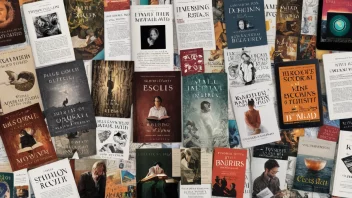Mystery novels have long captivated readers with their intricate plots and suspenseful narratives. However, beneath the surface of thrilling twists and turns lies a rich exploration of power dynamics. This theme is prevalent in many works, shaping characters' interactions and driving the narrative forward.
At its core, the theme of power dynamics in mystery novels often revolves around the struggle for control—be it through social status, knowledge, or psychological manipulation. Characters are frequently pitted against one another in a battle for dominance, and this tension adds layers to the storyline.
One of the most prominent examples can be found in Agatha Christie's works, especially in her famous novel, Murder on the Orient Express. In this story, the interplay between power and morality is evident as each character holds a piece of the puzzle. The mystery unfolds not just through the act of solving a crime, but also in the examination of how each character's past influences their present actions.
Similarly, contemporary mystery novels like The Girl on the Train by Paula Hawkins showcase how power dynamics can manifest through unreliable narration and psychological tension. Here, the protagonist grapples with her perception of reality, revealing how power can be wielded not just physically, but also emotionally. The shifting power between characters creates a gripping narrative that keeps readers guessing.
Another layer to consider is the societal implications of power dynamics within the genre. Many authors use their narratives to comment on larger social structures, such as class, gender, and race. For instance, in Big Little Lies by Liane Moriarty, the dynamics of power among suburban mothers highlight the often hidden battles of privilege and influence. This examination of how power operates in social circles adds depth to the characters and their motivations, making the mystery more than just a whodunit.
Moreover, the resolution of these power struggles often leads to a deeper understanding of justice and morality. In classic detective stories, the detective often symbolizes a moral authority, challenging the corrupt power dynamics within society. This theme is evident in Arthur Conan Doyle's Sherlock Holmes series, where Holmes's intellect and moral compass expose the flaws in the systems of power around him.
In conclusion, the theme of power dynamics in mystery novels enriches the genre by adding complexity and depth to the characters and plots. Readers are not only engaged in solving a mystery but also invited to explore the intricate web of relationships and societal structures that influence human behavior. As mystery novels continue to evolve, the exploration of power will undoubtedly remain a central theme, resonating with readers who seek to understand the complexities of human nature.






